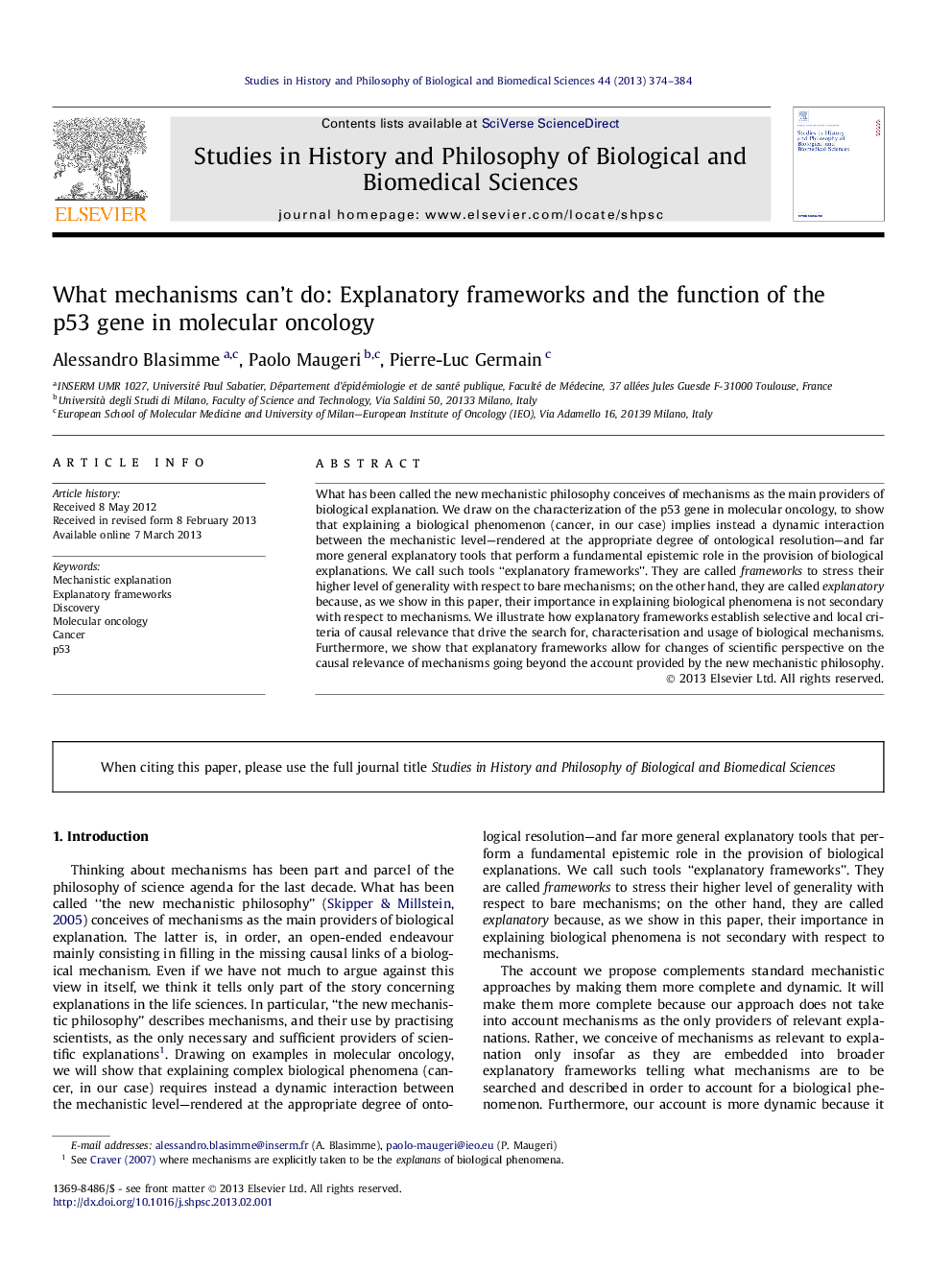| Article ID | Journal | Published Year | Pages | File Type |
|---|---|---|---|---|
| 1161767 | Studies in History and Philosophy of Science Part C: Studies in History and Philosophy of Biological and Biomedical Sciences | 2013 | 11 Pages |
What has been called the new mechanistic philosophy conceives of mechanisms as the main providers of biological explanation. We draw on the characterization of the p53 gene in molecular oncology, to show that explaining a biological phenomenon (cancer, in our case) implies instead a dynamic interaction between the mechanistic level—rendered at the appropriate degree of ontological resolution—and far more general explanatory tools that perform a fundamental epistemic role in the provision of biological explanations. We call such tools “explanatory frameworks”. They are called frameworks to stress their higher level of generality with respect to bare mechanisms; on the other hand, they are called explanatory because, as we show in this paper, their importance in explaining biological phenomena is not secondary with respect to mechanisms. We illustrate how explanatory frameworks establish selective and local criteria of causal relevance that drive the search for, characterisation and usage of biological mechanisms. Furthermore, we show that explanatory frameworks allow for changes of scientific perspective on the causal relevance of mechanisms going beyond the account provided by the new mechanistic philosophy.
► The mechanistic account of both explanation and scientific change are incomplete. ► Biology often evolves through changes in the relevance attributed to components. ► Explanatory frameworks are proposed to make sense of these changes. ► The role of p53 in carcinogenesis is used as an historical illustration.
